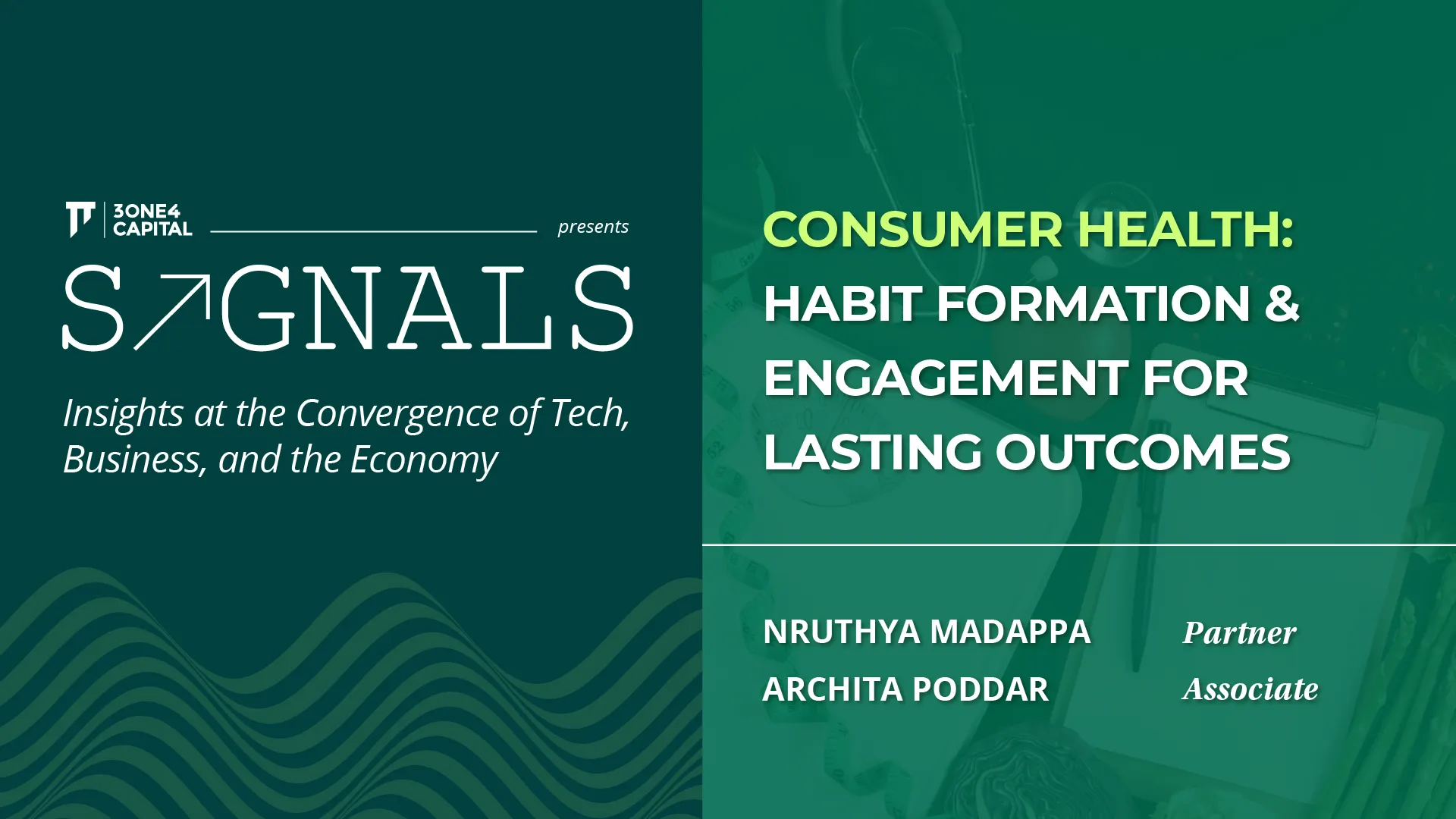
Consumer Health: Lasting Success is Driven by Habit Formation, Engagement, and Outcomes
While success in healthcare has always been driven by outcomes, consumer health has long been evaluated by investors alongside the “business model of guilt” - underutilized assets that consumer guilt paid for. The truth for success in consumer health today looks radically different with consumers and employers alike over-indexing on outcomes over recurrence driven by guilt.
Beyond Expectations: How Healthy Habits Radically Impact Health Outcomes
Despite being flooded with advice on diet, exercise, and mental health, there's still a wide gap between what we know and how we live. Globally, 70% of deaths are attributed to four lifestyle behaviors: physical inactivity, poor diet, excess alcohol consumption, and smoking.
Research by Discovery Vitality and the London School of Economics, analyzing over one million members of the Vitality Programme, demonstrates that the effect of behavior change on health by forming healthy habits is significantly greater than expected. For example, individuals who adopt moderate-intensity exercise habits can reduce their mortality risk by 27%, with the benefits amplifying as they age—up to a 52% reduction for those over 65. Moreover, maintaining simple habits, such as walking 7,500 steps daily, can lower the risk of type 2 diabetes by 41% and stage 4 cancer by 36%. The impact of physical activity on mortality.
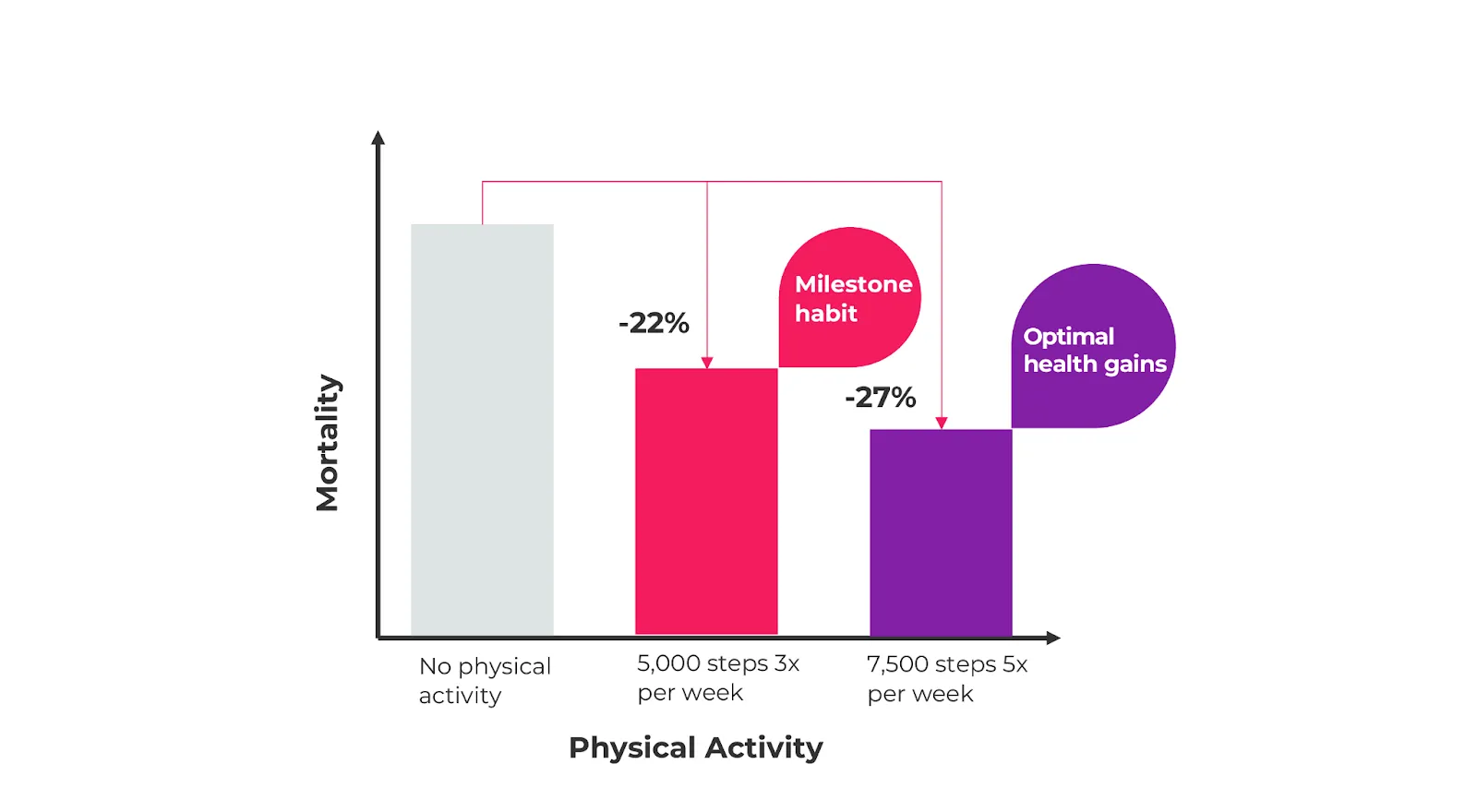
Figure 1: The impact of physical activity on mortality
These findings underscore that even modest lifestyle changes can lead to substantial health improvements, particularly for older and less active individuals. The data suggests that setting achievable goals, rather than ambitious targets, is key to sustaining these health benefits.
Healthy Habits Lead to Healthy Bottom Line: How Insurers and Corporates Are Revamping Benefits for Long-Term Savings
The proven impact of healthy habits on health outcomes has significantly transformed the health and wellness landscape, with Fortune 500 companies and the largest health plans investing in building healthy habits to save millions of dollars spent on chronic diseases.
Shift in Corporate Health Offerings
The corporate wellness landscape in the US is transforming due to the greater recognition of the importance of health habits. A significant 60% of employers report plans to reduce the scope of services purchased from traditional health plans, preferring third-party providers for health and wellness program components. Employers perceive these third parties as offering more valuable and effective solutions than traditional health plans.
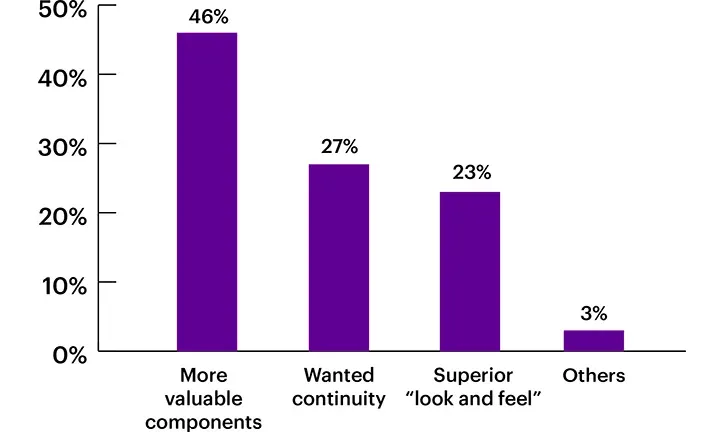
Figure 2: Employer reasons for looking to third-party providers of health and wellness programs
For instance, research highlights that regular meditation classes for employees can reduce company healthcare expenses, as lower stress levels among employees lead to reduced health insurance premiums. Reflecting this trend, 61% of employers planned to offer onsite yoga or meditation classes in 2023, a significant increase from 22% in 2022, while 60% planned to offer onsite fitness classes, up from 25% in 2022, according to a survey by Fidelity Investments and Business Group on Health. Major corporations, including Apple, Google, Nike, P&G, HBO, McKinsey, AOL Time Warner, and Yahoo!, are integrating meditation into their employee wellness programs, by providing meditation rooms, meditation sessions in the office, and free meditation classes outside of work. These initiatives have improved employee wellness, leading to higher work quality, creativity, interpersonal relationships, critical thinking, and employee retention. In most Fortune 500 organizations, meditation is now considered essential for employee development, showcasing the growing emphasis on health habits in the corporate world.
Reconfiguration of Insurance Plans and Pricing
One of the most significant shifts is the incentivization of healthy habits by insurance companies. Premature deaths, heavy medical expenses due to chronic diseases, and lower duration of premium collection hurt the bottom line of insurance companies. The impact of healthy habits on mortality is so significant that insurance companies are willing to offer lower premiums to customers with healthy lifestyle habits by as much as 10% along with additional credits for following simple healthy habits. The largest life insurers are now offering discounts and rewards programs to customers who demonstrate healthy habits like avoiding smoking, drinking moderately, and exercising regularly.
- UnitedHealthcare offers a wellness program called Rally that provides personalized recommendations to help employees improve their health through activities like walking, healthy eating, and stress management. They also have programs like UnitedHealthcare Motion that reward customers for reaching daily step goals.
- Oscar Health, a new age insure tech player, provides incentives for members to stay active by tracking their steps with wearable devices. It partners with Misfit, to provide members with wearable fitness trackers for free and integrates the divide with the Oscar app, to reward members for staying active. The rewards can be as much as $240 per year, just for walking!
- Humana’s Workplace Wellness Programs offers a Go365 wellness and rewards program that allows employees to earn rewards for healthy actions like completing verified workouts or getting a flu shot. They offer biometrics screenings to boost employee well-being and health coaching that rewards employees for engaging with certain health coaching programs. Coaching also helps employees manage weight and stress, quit smoking, and develop healthy eating habits.
The Habit Formation Hurdle: Why Wellness Innovations Struggle with Low Engagement
In the rapidly evolving world of digital healthcare, mobile health apps are making a seismic impact, poised to transform how we monitor, manage, and enhance well-being. With approximately 10,000 to 20,000 mental health apps alone being available, the potential for personalized, accessible, and data-driven solutions has reached new heights. Overall, the global wellness market in 2024 is estimated at $1.8 trillion with the US wellness market alone reaching US$480 billion at a CAGR of 5 to 10 percent.
Nevertheless, a stark reality remains: most users abandon these apps within weeks, leaving their potential benefits largely unfulfilled. Research shows that retention rates for mobile health apps drop to just 3.9% after six months, and even the most popular apps often struggle to retain more than 10% of their user base after a year.
Researchers like Dr. Pauline Whelan (Digital Health Technical Lead at the University of Manchester) have tried to define how engagement for digital health apps should be measured. Engagement doesn’t require customers logging in to the platform all the time but is instead about ensuring that people use the platform “just enough” to meet their needs and improve their outcomes.
Figure 3: Determining and Enforcing Engagement is a Science
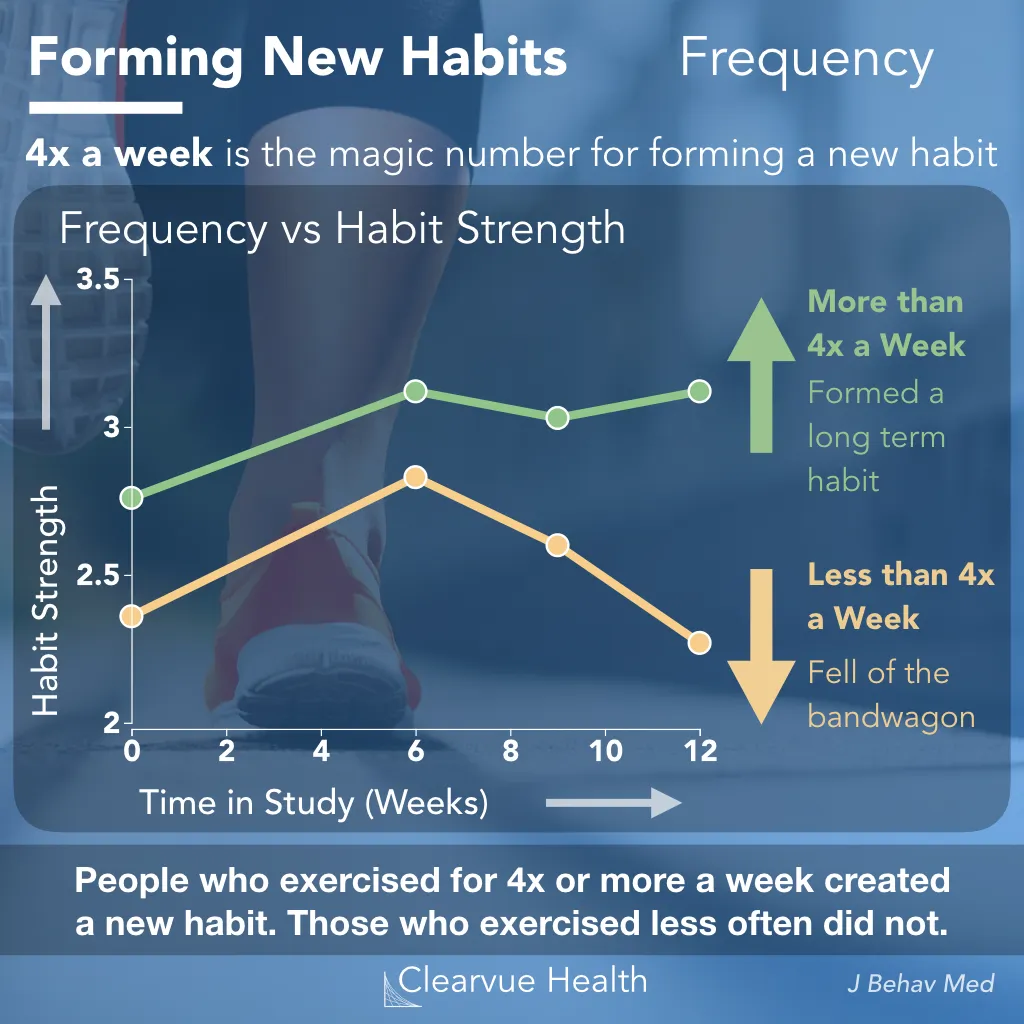
The Most Successful Wellness Startups Win on Engagement
Successful health tech companies have taken a thoughtful, long-term approach to wellness by focusing on personalized and science-backed products and experiences that address consumers' underlying health and lifestyle routines. They focus on providing real value by sustained use, which they ensure by incorporating habit formation features. As a result, these wellness brands have been able to establish themselves as trusted authorities and grow their businesses over the long run.
Some wildly successful wellness startups have leveraged technology, personalized coaching, and gamification to drive lasting behavior change, as below:
- Sprout At Work is the industry-leading corporate wellness platform for improving health and happiness of employees and driving measurable business results. For instance, Sprout users take 27% more steps than the average employee which helps to reduce their risk of developing cardiovascular disease by 25%. The platform was built by using cognitive behavioral science, game theory, and behavioral economics to empower lasting behavior change. Employees can opt for personalized coaching or self-directed online modules, while they learn to identify needs, set goals, and develop new habits for improved physical and mental wellbeing.
- Headspace, the meditation and wellness app, uses gamification features to turn meditation into a regular habit. By incorporating a reward system, Headspace keeps users engaged and motivated to practice regularly. Trusted by major companies like Google, LinkedIn, and Adobe, Headspace helps employees achieve peace of mind, demonstrating how habitual wellness practices can enhance overall productivity and satisfaction.
- LifeDojo, an employee wellbeing platform that is used by several Fortune 500 companies and high-growth technology companies, is recommended by top psychologists, therapists, physiologists, nutritionists, and mental health experts for its supportive yet scientifically rigorous approach to permanent behavior change. LifeDojo's content was co-created alongside experts from Stanford, Harvard, UPenn, and Columbia University, offering a scientifically rigorous approach to well-being. LifeDojo has been successful at engaging the entire workforce, sustaining long-term behavior change, and reducing overall healthcare costs. The platform’s extensive range of habit goals and expert coaches help employees maintain new health habits, with 45% of employees creating new health habits that stick for 6+ months. LifeDojo's approach to employee-driven behavior change delivers lasting health improvement outcomes, high enrollment, and better engagement than traditional top-down wellness programs.
- Down Dog, the highest-rated app for practicing yoga at home, aims to replace the need for a yoga teacher by using AI to create an endless stream of individualized yoga practices. Recognizing the challenge of maintaining discipline without a physical class, Down Dog includes goal-setting features and push notifications to help users commit to regular practice. By turning yoga into a habit, Down Dog ensures that users reap the benefits of consistent exercise and mindfulness.
Successful Engagement Strategies are Rooted in Science
Building a digital health business that wins on engagement is not a matter of nifty product innovation, but is the result of science-backed engagement strategies. Successful engagement strategies are grounded in scientific principles, combining insights from psychology, behavioral science, and data analytics to create compelling user experiences that attract users to the platform and keep them engaged.
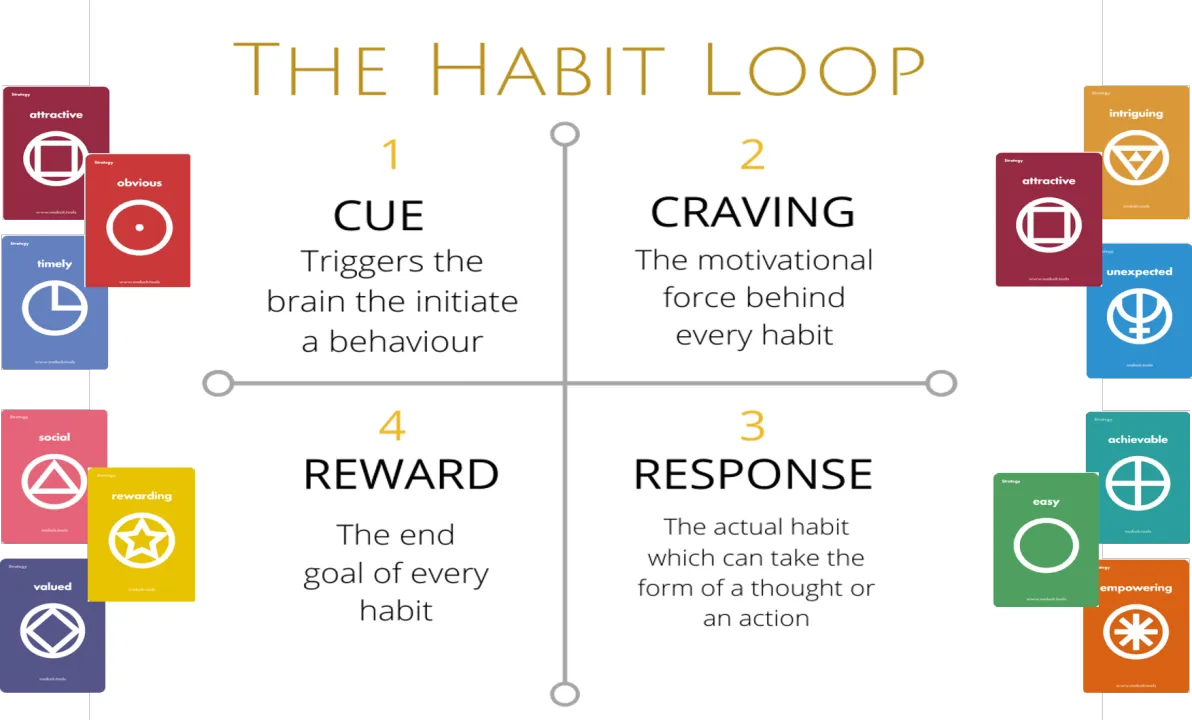
In addition to using the basic principles of the habit loop, several scientific theories, as below, go into building an app that retains its users and hence enables improved outcomes in the long run.
- Richard Thaler’s Nudge Theory: It is a significant concept in behavioral economics that explores how subtle changes in the way choices are presented can significantly influence people's decisions without restricting their freedom of choice. There are two common ways in which this is leveraged in habit formation features used by apps:some text
- Regular Check-ins and Personalization: Push notifications and in-app reminders prompt users to engage with the product by encouraging them to log meals, track activity, complete workouts, and maintain healthy habits. Companies experiment to identify the most effective prompts which are often personalized based on the type of product and the specific customer. Some companies provide customizable reminder options drinking water, taking supplements, starting a meditation session, etc., since timely nudges help build consistency. CALM uses mood assessments and in-app journal prompts. Nutrition companies like Sundose and Rootine send users personalized supplement reminders and meal-planning suggestions to incorporate into their daily lives.
- Product Designed to Integrate with Daily Routine: Companies are increasingly designing their products to seamlessly integrate with users' existing daily routines and habits, making regular use easier for their customers. Shvasa, 3one4’s portfolio company, optimizes customer convenience by offering 50+ classes across different times of the day and various types of yoga every day, with each class having a maximum of 15 students. CALM provides various offerings for consumers to fit a meditation session into their day based on their convenience. It provides 60-second pre-meeting meditations to 10-minute daily meditation sessions called “The Daily Calm”. 28 Wellness, a cycle-based fitness and wellness experience for women, provides personalized content and recommendations based on a user's menstrual cycle, aligning with their natural rhythms.
- Plateauing Marginal Health Benefit: Research suggests that the holy grail of 10,000 steps is a myth and risks us overlooking the power of small changes. As shown in the chart below, 7,500 steps per day has a significant impact on mortality but the marginal mortality benefit of walking plateaus between 7,500 and 8,000 steps.
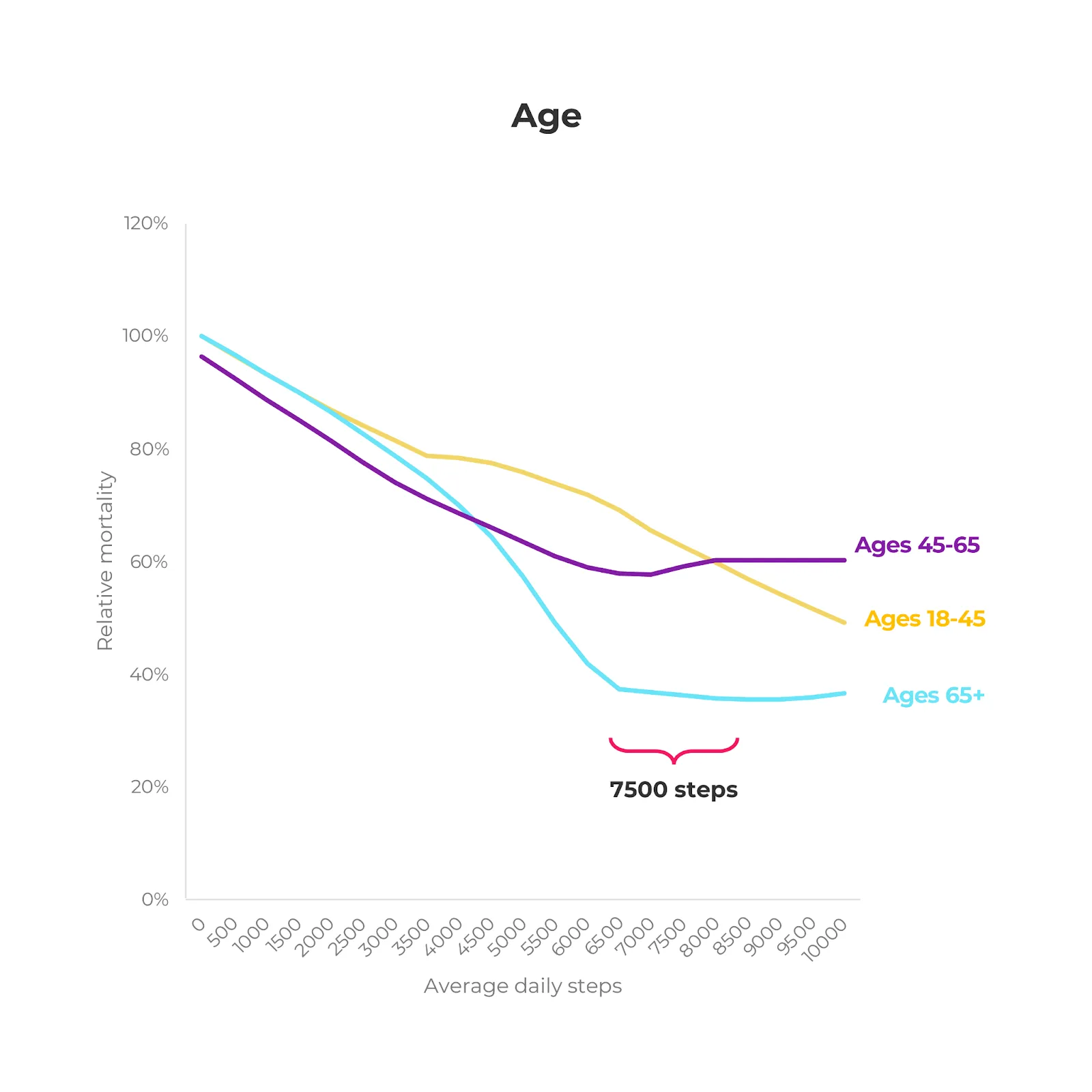
This research makes starting small more effective than it seems to a consumer looking to build healthy habits. Small amounts of light physical activity are more beneficial than none and it is easier to build habits with simpler actions. Achieving small behavior changes boosts self-efficacy, encouraging the pursuit of additional health-promoting habits. Some wellness apps implement the practise of starting small by gradually unlocking new features and functionalities as users consistently engage with the core product. This encourages customers to focus on mastering the basics before expanding their routine.
For instance, the Zero Longevity Science app starts by tracking sleep and then gradually enables nutrition and exercise tracking over time. Wellness startups like 28 Wellness and Rootine, a plant-based superfood company, break down larger health goals into smaller, more manageable micro-goals, to build momentum through consistent steps. This could involve setting daily step targets, committing to a 5-minute meditation practice, or adding one extra serving of vegetables each day.
- Dopamine Reward System: The dopamine reward system is integral to the effectiveness of gamification and social sharing in enhancing user engagement. Dopamine is a neurotransmitter associated with pleasure and reward. When users feel a sense of achievement through gamification or social sharing, their brains release dopamine, which reinforces the behavior that led to that reward. Hence, the dopamine reward system is crucial for ensuring engagement.
- Gamifying the Experience: Gamification establishes clear, attainable goals, making it easier for users to experience these rewards frequently, which in turn boosts motivation and productivity. Wellness apps and devices often incorporate game-like elements and variable rewards to keep users engaged. Companies like JAXJOX, which provides a smart gym experience at home, and Bodymatter, a digital health company building personalized health solutions for customers, use features like activity streaks, points, and leaderboards to tap into users' innate desire for achievement and competition, driving habitual use.
- Enabling Social Sharing: Social validation through likes and comments triggers dopamine responses similar to those experienced with personal achievements. Many wellness products allow users to share their progress and achievements with friends and family. This social element creates an additional layer of accountability and motivation to keep users consistently engaged. Seeing friends' activity can also act as a trigger to open the app and join in. CALM encourages users to share their experiences after each session by providing easily shareable content to make the sharing process easier.
At 3one4 Capital, we have closely followed consumer wellness on a pan-India and global level. Engagement stands out as the North Star metric for us, leading us to have a laser focus on habit formation, community, and gamification. We have seen strong engagement lead to outcomes and long-term success in companies like Kapiva and Breathe, which recently led us to invest in Shvasa as well. Shvasa, a digital wellness startup that provides a full-stack solution for yoga, meditation, and nutrition, has improved health outcomes for its customers by driving habit formation through gamification, regular check-ins, and a wide variety of personalized product offerings to fit their customers’ specific needs. Shvasa’s high user engagement rate and net promotor score, along with improved outcomes such as 33% of customers stating being less dependent on medication, 69% reporting a reduction in stiffness and pains, and 85% reporting getting better sleep, has reinforced our thesis on what succeeds in this market.
DISCLAIMER
The views expressed herein are those of the author as of the publication date and are subject to change without notice. Neither the author nor any of the entities under the 3one4 Capital Group have any obligation to update the content. This publications are for informational and educational purposes only and should not be construed as providing any advisory service (including financial, regulatory, or legal). It does not constitute an offer to sell or a solicitation to buy any securities or related financial instruments in any jurisdiction. Readers should perform their own due diligence and consult with relevant advisors before taking any decisions. Any reliance on the information herein is at the reader's own risk, and 3one4 Capital Group assumes no liability for any such reliance.Certain information is based on third-party sources believed to be reliable, but neither the author nor 3one4 Capital Group guarantees its accuracy, recency or completeness. There has been no independent verification of such information or the assumptions on which such information is based, unless expressly mentioned otherwise. References to specific companies, securities, or investment strategies are not endorsements. Unauthorized reproduction, distribution, or use of this document, in whole or in part, is prohibited without prior written consent from the author and/or the 3one4 Capital Group.




.png)









